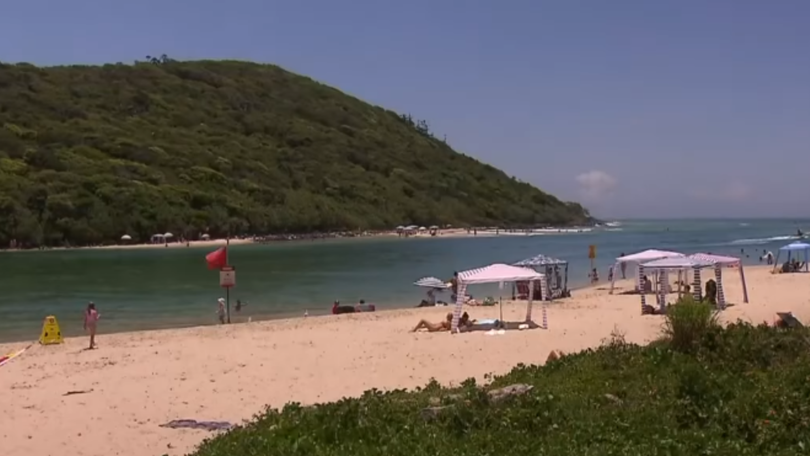Tallebudgera Creek on the Gold Coast closed due to poor water quality after ‘human faeces’ detected

A popular Queensland swimming spot was closed over the weekend after human faeces were reportedly found in the water, sparking public health concerns.
Tallebudgera Creek on the Gold Coast was closed on Saturday and Sunday, the Gold Coast Bulletin reported.
Heavy rain in the area has affected the water quality, causing the beach to appear a murky brown on Sunday.
Sign up to The Nightly's newsletters.
Get the first look at the digital newspaper, curated daily stories and breaking headlines delivered to your inbox.
By continuing you agree to our Terms and Privacy Policy.The beach is patrolled by volunteers on the weekend, one of whom told the Bulletin she collected human faeces from the water.
“It was pretty horrible — it’s not flushing out as quickly as it usually does,” Yvonne Curtis said.
“We had a lot of trouble keeping people out of the water.
“But most of them were convinced when I showed them the bag (of faeces).
“You literally couldn’t see 100mm into the water it’s so dirty. We always close the beach when it looks like that, for health reasons.”
Surfrider Gold Coast, which monitors water quality, last tested the water on Thursday and reported it had a medium water quality rating — or a yellow rating on its traffic light system.
City of Gold Coast lifeguards monitor the beach on weekdays and have confirmed the beach will reopen on Monday.
“Lifeguards have informed us that all beaches are open today,” a City of Gold Coast spokesperson told 7NEWS.com.au.

Tallebudgera Creek was closed after a major sewerage leak late last year.
The leak was traced back to a burst pipe from the Eleanora wastewater treatment plant in Palm Beach, where untreated waste had been spilling over bushland and into the creek.
The closure also comes just over a month after black “tar balls” closed multiple Sydney beaches.
Coogee Beach, Gordons Bay, Maroubra Beach and Clovelly Beach were closed for some time in Sydney due to the presence of tar balls, while Bondi Beach, Tamarama Beach and Bronte Beach were closed as a precaution.
Testing confirmed the “unusual” spheres to be phenomena or “tar balls” that form when oil comes into contact with debris and water — typically the result of oil spills or seepage.
“Preliminary test results show the material is a hydrocarbon-based pollutant which is consistent with the makeup of tar balls. Hydrocarbons are the chief components of petroleum-based products,” the council said.
On the Gold Coast, the Currumbin Rock Pools were closed almost two years ago following the discovery of intestinal bacteria.
The pools remained closed for almost a month.
At the time, the City of Gold Coast said it was not aware of any reports of illness associated with bacteria at Currumbin Rock Pools leading up to the closure.
According to the Australian Commission on Safety and Quality in Health Care, enterococci bacteria can cause infections in the urinary tract or stomach and have “rarely” caused endocarditis, or infection of heart valves.
Originally published on 7NEWS
